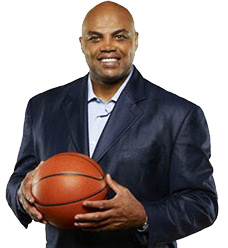In 2016, Charles Barkley marked Black History Month with a daily spotlight on local African-American heroes. Many of them didn’t make it into the history books or even the newspapers of their time. But their stories are inspiring and worth knowing. Here’s another look.
20
Leon Sullivan
Civil Rights Leader
Leon Sullivan
Civil Rights Leader
(October 16, 1922- April 24, 2001)
Rev. Leon Sullivan—the “lion of Zion”—used his pulpit and his position as longtime pastor of North Philly’s Zion Baptist Church to organize for local African-American causes, particularly in employment.
From 1959 to 1963, he led area black preachers in organizing “selective patronage” boycotts of local companies—Tasty Baking, Sun Oil, Gulf—deemed to discriminate against African Americans in their hiring, urging black consumers with the slogan “Don’t buy where you don’t work.”
The movement opened up several thousand jobs to black workers and drew national attention, including that of Martin Luther King Jr, who adopted Sullivan’s techniques in his Operation Breadbasket.
In 1964, Sullivan opened the first Opportunity Industrial Center, a job-service training program to teach manufacturing skills to black Philadelphians. OIC still operates today, in 22 states and around the globe.
Sullivan led Zion for 40 years, growing it from 600 congregants to 6,000, and turning it into a community hub (the center still bears his name).
Throughout, he also spent time in South Africa helping to fight and dismantle apartheid and creating a set of rules—now dubbed the ‘Sullivan Principles’ —that serve as guidelines for American corporations doing business in South Africa.
He recalled in a 1999 interview a trip to South Africa that ended with him enduring a strip search at the airport.
“A man with the biggest .45 I’d ever seen said, ‘We do to you what we have to,’” Sullivan recalled to the New York Times. “I stood there in my underwear, thinking, ‘I’m the head of the largest black church in Philadelphia and I’m on the board of directors of General Motors. When I get home, I’ll do to you what I have to.’”
![]() EDUCATION:
EDUCATION:
- West Virginia State College, B.A. 1943
- Union Theological Seminary
- Columbia University, M.A. 1947
- Virginia Union University, D.D.
ACCOMPLISHMENTS:
- Founded Zion Investments Inc. in 1962
- Founded OIC in 1964
- First black Director of General Motors’ board
- Started first African-African American Summit, 1991
- Selected as one of 10 outstanding young men in United States by U.S. junior Chamber of Commerce, 1955
- Named one of 100 Outstanding Young Men of America, Life magazine, 1963
- Russwurm Award, National Publisher’s Association, 1963
- Philadelphia Fellowship Commission Award, 1964
- Philadelphia Book Award, 1966
Awarded Presidential Medal of Freedom in 1991 - Franklin D. Roosevelt Four Freedoms Medal in 1987 for his efforts to eradicate apartheid in South Africa
Final Word: The preamble of Sullivan Principles reads: “The objectives of the Global Sullivan Principles are to support economic, social and political justice by companies where they do business; to support human rights and to encourage equal opportunity at all levels of employment, including racial and gender diversity on decision making committees and boards; to train and advance disadvantaged workers for technical, supervisory and management opportunities; and to assist with greater tolerance and understanding among peoples; thereby, helping to improve the quality of life for communities, workers and children with dignity and equality. I urge companies large and small in every part of the world to support and follow the Global Sullivan Principles of corporate social responsibility wherever they have operations.”




